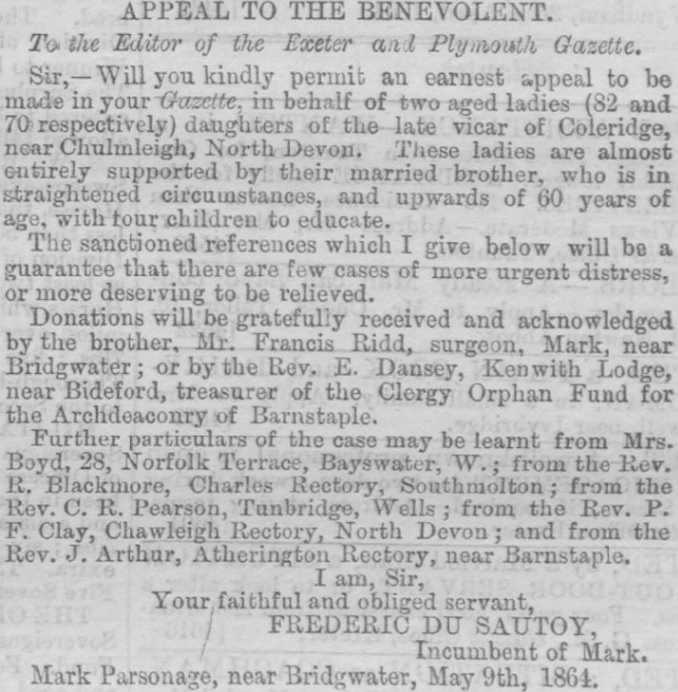Rev John Ridd
In the early nineteenth century many clergy lived on the brink of poverty. Rev John Ridd of Coldridge is a case in point.
He was born in Challacombe in North Devon in about 1752, and graduated from Gonville and Caius, Cambridge. Shortly after being ordained in 1777 he was appointed Curate of St Matthew’s Coldridge – where he was to spend the rest of his life.
[Rev James Gay was the Vicar at that time, but he lived and worked in Frithelstock and paid Ridd an annual salary of £40 to do the work in Coldridge. Gay died in 1794 and was replaced by Rev William Smith (who also held livings in Bideford and West Worlington).]
Soon after he was ordained, John Ridd married Grace Hooper in Tawstock near Barnstaple. He died in Coldridge in 1810.
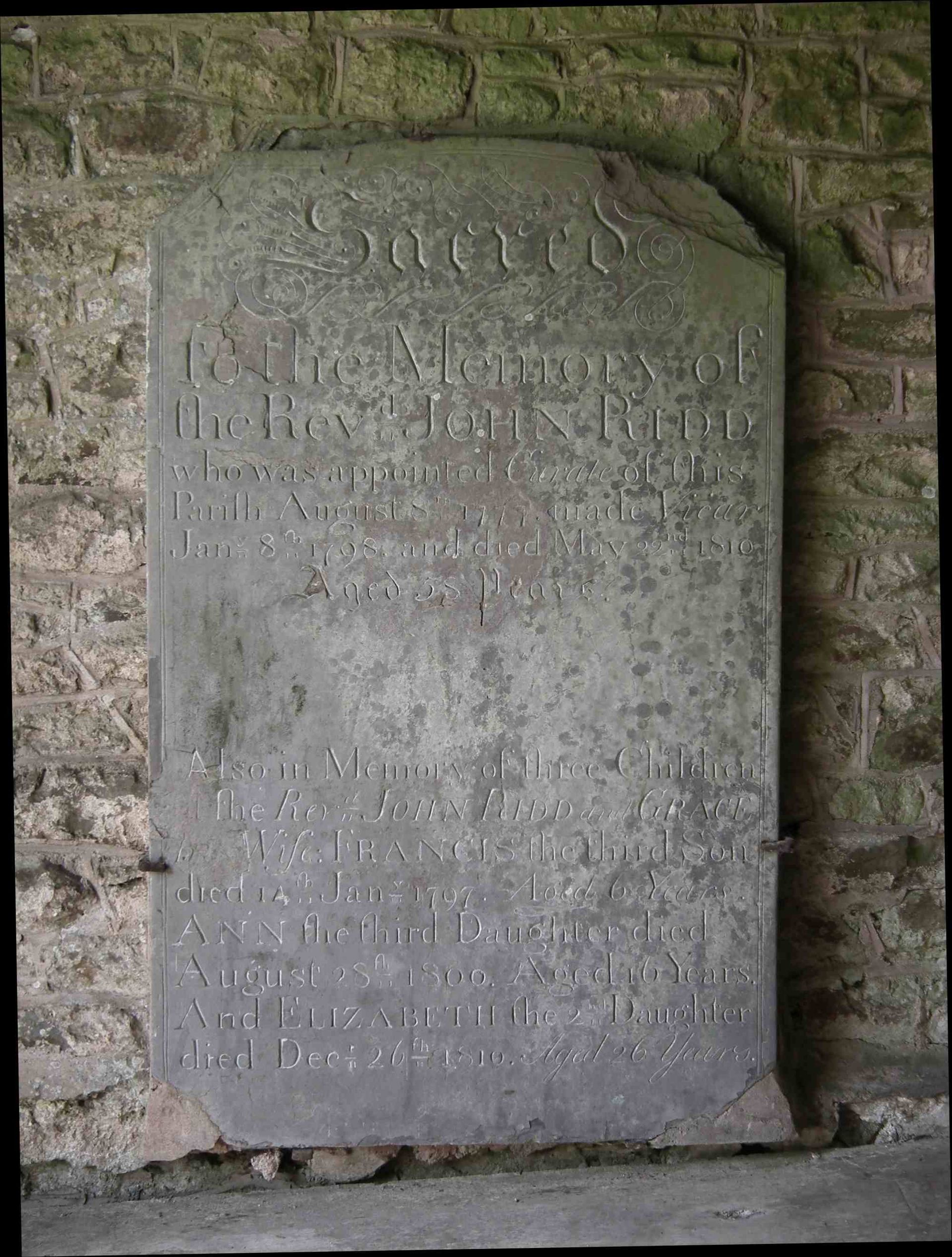
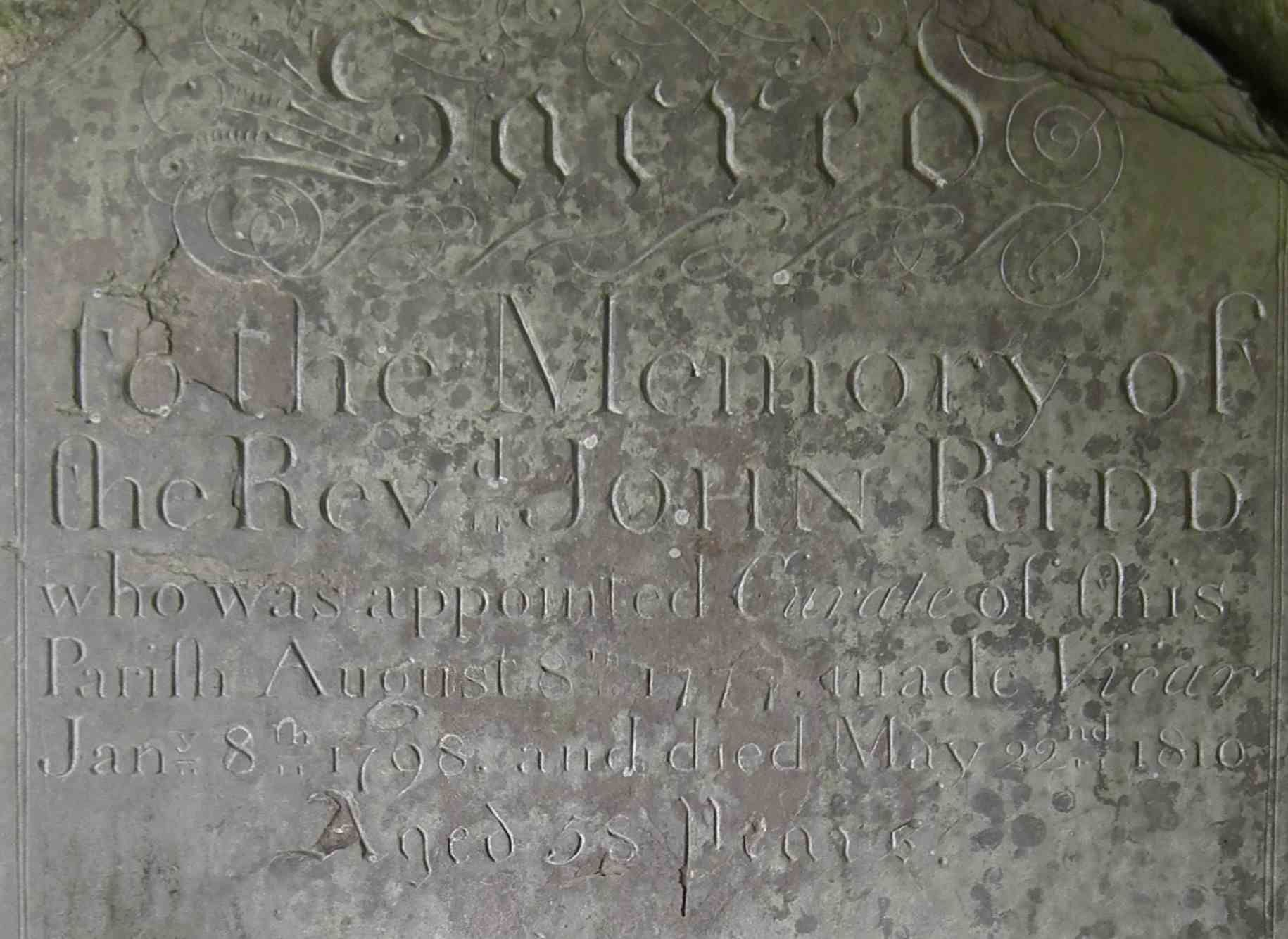
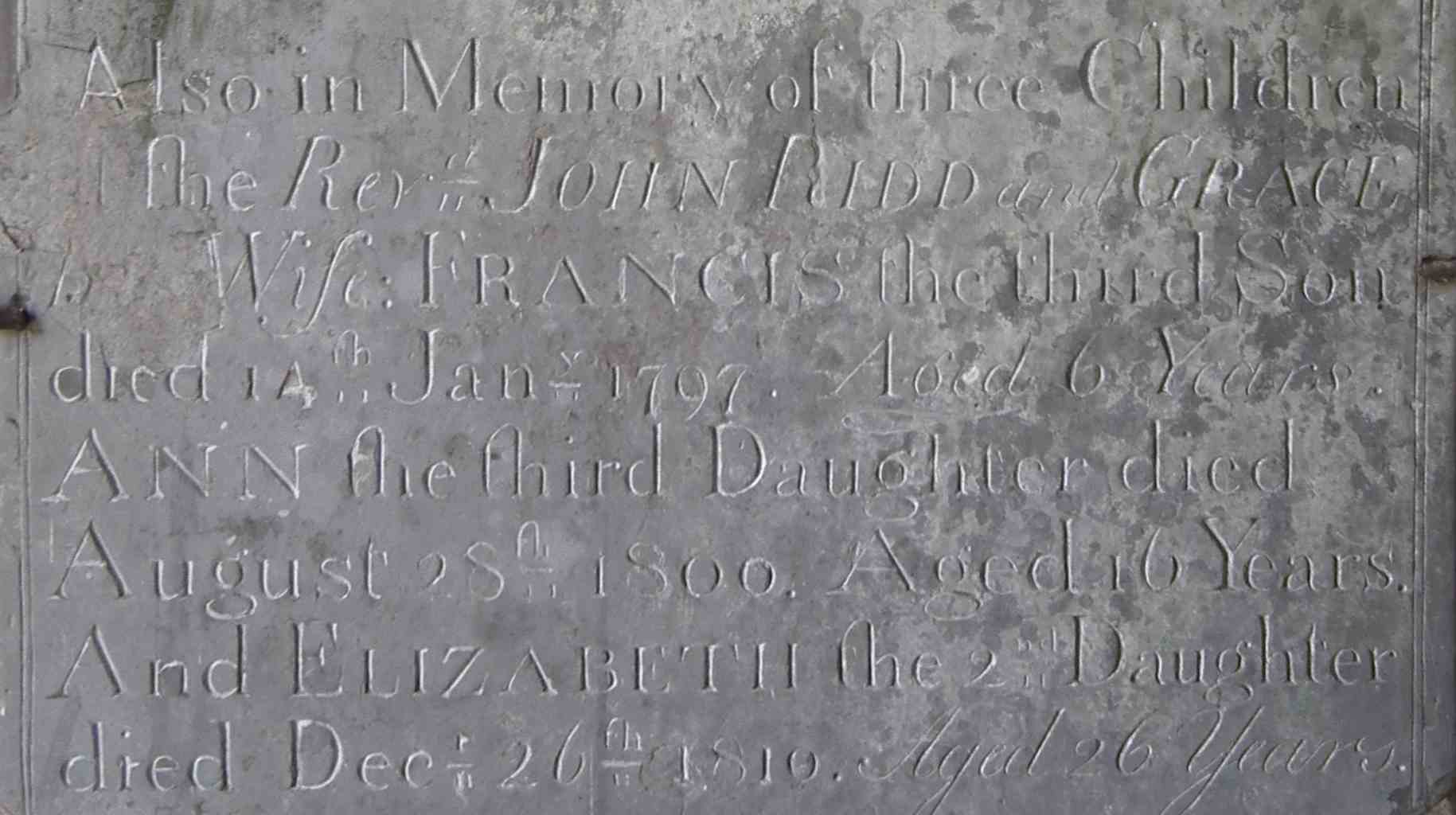
His gravestone has been moved to the entrance porch of the church. It also records the deaths of three of his children. Space was left for mention of his wife’s death (in 1825 in Combe Martin) but this has not been used.
The slate gravestone tells only part of the story as John and Grace Ridd had at least ten children and latterly their family was reliant on charity.
Until about 1797, he was able to supplement his income by officiating at two neighbouring churches including Brushford, which brought in an extra £30, but then the incumbents returned to their parishes so he was back to living on £40, less £18 rent, (probably an illegal arrangement).
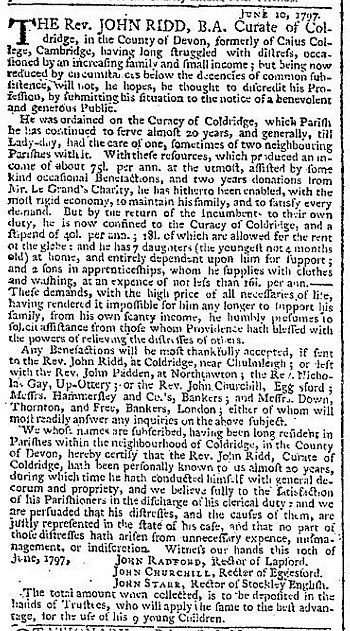
Clergy from neighbouring parishes advertised a national appeal for charitable donations and within a few months these donations, mainly from other clergy, were sufficient to sort out his immediate problems and to purchase an annuity. The following year, probably embarrassed by this publicity, the Bishop of Exeter appointed Ridd as Vicar of Coldridge, with a salary of £100.
Of his sons, John b. 1778 became a surgeon in Combe Martin, having first served an apprenticeship with Mr Legg of North Tawton. He died in 1821.
Samuel b. 1780 became a captain in the army. After his death in 1833, there was a public appeal for donations to assist his widow Mary. According to this account in 1817 he was the hero of a shipwreck on the Spanish coast.
On Oct 24 1817 the troop transporter “Ellice” (Captain Thomas Staveley Longstaff) taking soldiers and their families to Gibraltar left Cowes and headed though the Bay of Biscay. On 1 November it ran aground on rocks in fog at Estaca de Bares in the North of Galicia. About 30 of the 145 on board drowned, and everyone’s belongings were lost.
Samuel Ridd, lieutenant in 60th Regiment of Foot, and his wife were two of the survivors
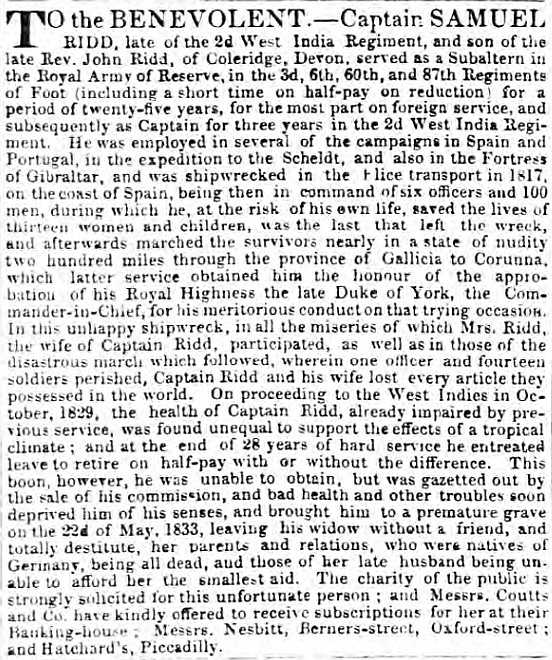
Francis Ridd was born in Coldridge in 1800. He trained as a surgeon, first as an apprentice to his elder brother John. He qualified in 1823 and became MRCS in 1830. He then practised in Barnstaple.
On Christmas day 1839 there was a rumour of a “hostile meeting” about to take place between Francis Ridd and James Lister of Combe Martin over a matter of medical etiquette. They were both bound over to the sum of £200 to keep the peace.
In March 1840 he was sued by William Parker, another Barnstaple surgeon, for breach of a covenant not to practise within ten miles of that town for six years. Ridd lost the case and had to pay £300 to Parker. He moved to Somerset, settling at Nether Stowey where he lived with his sister Susanna. He became bankrupt and as a result was jailed in Taunton in 1845.
He married Rebecca Fry in 1846 in Bristol; they moved to Mark in Somerset where they brought up their four children. Their two sons, Arthur and Coleridge both became druggists. Several years after the death of Francis in 1866, his widow and the two sons all emigrated to New Zealand
Of the daughters, three widowed sisters (Grace, Judith and Avis) were living with Frances and his wife. in 1861 in Mark. In 1864 another public appeal for financial help for the two older sisters was made
